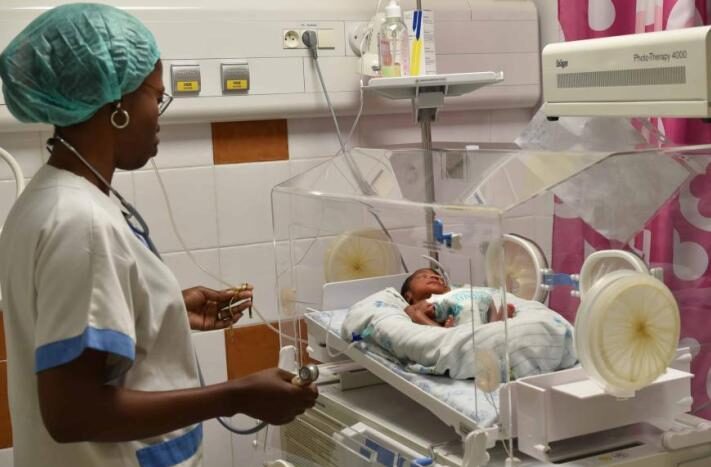Free childbirth in Kinshasa is a laudable initiative, as it would promote maternal health, equity and reduce maternal and newborn mortality rates. Is this a step towards the CSU? Patrick Ndjadi Ombombo, an expert in healthcare coverage, asks.
For the Health Rights Defender, government communication on the policy of free childbirth, the timetable and implementation stages remain unclear.
“We have the impression that we’re more in the business of promoting maternity than in a process of a holistic vision of CSU (Universal Health Coverage).”
Such a situation is likely to ultimately influence people’s perception of the reality of the free program, and confuse its application. What’s more, the no-fee policy can also generate a reverse effect, i.e. the payment of certain complementary and indirect services. A situation often created by care providers to recoup lost earnings if they are not paid very well.
“How can we launch such a far-reaching policy without at the same time answering the question of the number of beds per inhabitant, the question of salary payments for healthcare staff, of which the problem of repeated strikes is just the tip of the iceberg?”
The launch of free childbirth in the DRC, without addressing the issue of the number of hospital beds and doctors per inhabitant, and without resolving the problem of strikes by the medical profession, would be the chronicle of a foretold failure. And this could even destroy the dream of implementing universal health coverage in its holistic vision.
The Healthcare Coverage Expert Tribune also mentions this same policy in the Sahel countries of Mali and Senegal.


